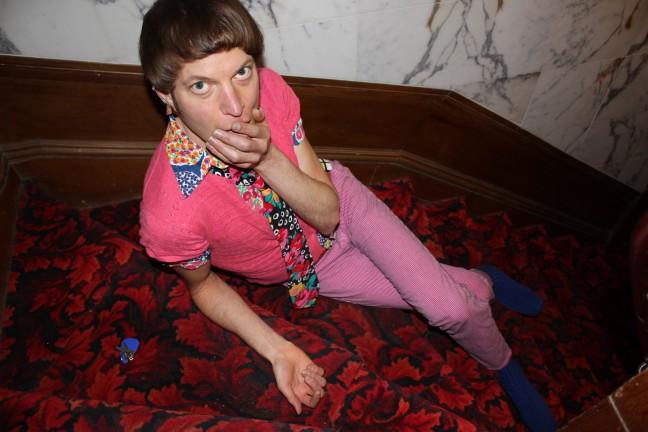During the past two decades, San Francisco-based queer activist and author Mattilda Bernstein Sycamore’s life has been defined by queer community building, pop culture, sex, searching for a home and developing a sense of belonging.
Sycamore will speak Thursday at 7 p.m. in the L140 Elvehjem Building about his new memoir, “The End of San Francisco,” in celebration of LGBTQ history month in an event hosted by the University of Wisconsin’s Lesbian, Gay, Bisexual, Transgender Campus Center.
The Badger Herald had the opportunity to talk with Sycamore ahead of her two-day campus visit. The following interview has been edited for clarity and style.
The Badger Herald: What inspired you to write a memoir?
Mattilda Sycamore: In general, I kind of write to stay alive. It’s the one thing I’ve had access to over the years in order to sort of process and make sense of the disconnections in my life.
San Francisco for me was a transformative place. I moved there when I was 19, and it’s where I first figured out my own visions of community building, activism, sex, love and intimacy on my own terms. But it’s also the place that’s let me down the most. I wanted to investigate the contradictory dynamic.
From the beginning, it was always everything at once, what I dreamed and everything that failed me, so I wanted to investigate how the city has such a hold over me. I think we have this dream in a lot of different places of finding that place where marginalized queers, artists, activists and freaks can come together, find one another and figure out a way to cope. I wanted to investigate that dream and all of its failures.
BH: What do you hope people are able to learn and take away from your memoir?
MS: When I was coming of age as a queer person in the world, it was really important for me to find a way to express invulnerability because I always felt threatened—threatened by my parents, by the homophobia at school, by people on the streets—so I had to cultivate this sense of invulnerability in order to find people who would mean something to me.
I think now, 20 years later, vulnerability is what is going to save me, not invulnerability. In this book particularly, I’m trying to be as vulnerable as possible, so the book is structured by emotion rather than conventional plot structure, and I really want it to be guided by the emotion.
I feel like as queer people or as anyone thinking outside of mainstream norms, there’s a temptation to articulate a kind of “we have arrived” positivist messaging in order to counter the silence in the places around us. I think, unfortunately, that sort of positivism actually camouflages violence and I want to talk about the places of failure, to talk about the values that I’ve believed in, the values of accountability, individuality and building politics through desire and building relationships through politics. To talk very honestly, I don’t think we can ever get to a place where we can actualize our dream unless we can talk honestly about the places where we fail.
BH: As an activist, what do you want to raise awareness about?
MS: My activism over the years has focused on countering assimilationist narrative in the sort of gay/LGBTQ mainstream. Mainstream gay politics tells us that the most important issues center around accessing straight privilege, things like marriage, military service, putting more faith into the criminal justice system through hate crime legislation, as well as unquestioning gentrification and consumerism. Those are the hallmarks of the mainstream gay movement.
For me, that’s the real nightmare of identity politics, where identity becomes an end point rather than a starting point. My politics have always been about coming back to the idea that identity is really useful as a starting point. How else can we find other people like ourselves, people to love and lust for, take care of and dream with?
BH: How do you think people can be more accepting of queer culture?
MS: I’ve been drawn over the years to direct action activism and building radical queer culture on our own terms: Coming together with one another to create systems of care, to create love, to create intimacy and to do activism.














